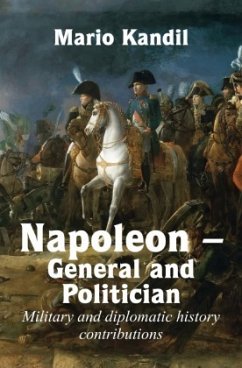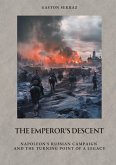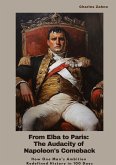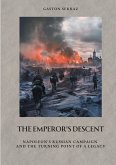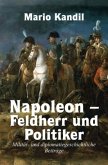"Napoleon is to blame for everything" - this is the title of a German feature film from 1938, and I could also use this as the motto for this publication on Napoleon Bonaparte. For 40 years now - in other words, since my youth - I have been studying the person and the era of the small and yet so great Corsican, who has fascinated me, like so many people - a fascination that is still going on. Whether you have a positive or negative attitude towards him, he certainly leaves very few people indifferent. France's "Messiah", who was to end (in the sense of "complete") the Revolution, was by no means born under peaceful stars on 15 August 1769, and this warlike constellation, which shaped his entire life, lasted until his death. The debate about how he should be judged, lived on even after his death and has flared up again on the 200th anniversary of his death on 5 May 2021 - albeit not with the same intensity as before.Napoleon owed his success to the "roles" he was able to play. On the one hand, he was an arbiter between the old and new worlds. Standing above the parties, he wanted to bring about unity, his unity, and so he became Emperor of the Republic. Europe could only defeat him by constantly forging new coalitions against him, which was not easy. Napoleon constantly exploited the dynamics of political opposition in his favour. He was very inventive and intelligent, had an excellent memory and mastered the most diverse fields of knowledge: Military strategy, mathematics, geography, history, religion, law, philosophy, literature and economics. He was well versed in almost all branches of knowledge and professions and created a unity at the centre of which he stood. His confidence in this unity led him to distribute Europe's thrones among the members of the Bonaparte family. Napoleon himself, who came from lower nobility, married Marie-Louise, a Habsburg princess, in the hope of securing the future of his own dynasty, but this hope was ultimately in vain.
Bitte wählen Sie Ihr Anliegen aus.
Rechnungen
Retourenschein anfordern
Bestellstatus
Storno

